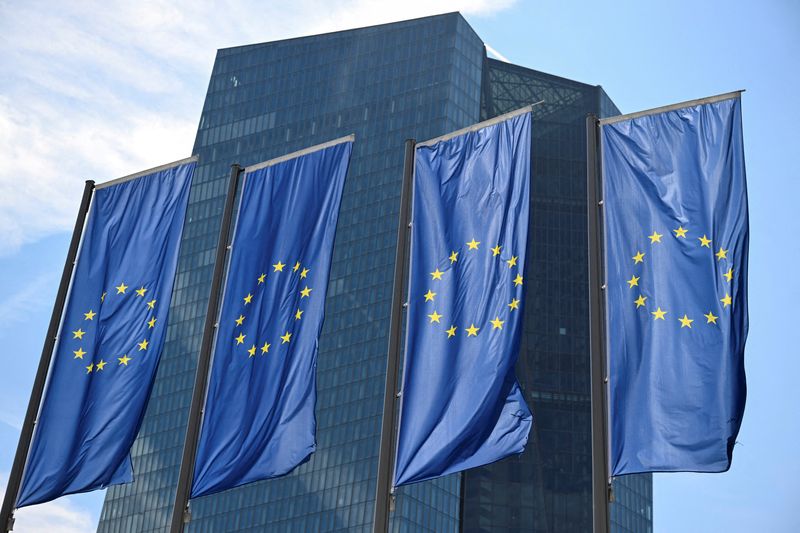By Francesco Canepa and Balazs Koranyi
FRANKFURT (Reuters) – Six European Central Bank policymakers told Reuters they were broadly in favour of a tie-up between Italy’s UniCredit and Germany’s Commerzbank (ETR:CBKG) and viewed Berlin’s opposition to a deal as running against the principle of European integration.
The German government is putting pressure on UniCredit to drop its plan to merge with Commerzbank, criticising the Italian bank’s “aggressive” tactics and backing efforts by Germany’s second-largest lender to stay independent.
The ECB’s 26 policymakers will have the final say on whether any deal can go through. Conversations with half a dozen of them revealed frustration at Germany’s attitude, which some said was hypocritical.
All spoke on condition of anonymity because they are not authorised to comment on individual banks.
They pointed to Germany’s stated support for creating a banking union in the European Union and regional champions in other sectors, such as defence, as well as its defence of free market principles in matters including monetary policy.
The policymakers said that in principle they are in favour of a deal they view as building a larger banking group operating in multiple European countries – a longstanding ECB goal. The ECB acts as supervisor of the euro zone’s biggest banks.
But they said the ECB could do little to influence the outcome of the political tussle, other than reaffirming the importance of a banking union.
An ECB spokesperson declined to comment.
UniCredit, with a market value three times as large as Commerzbank’s, is seeking the ECB’s approval to raise its stake in the German bank to 29.9%, having built it up to close to 21% through a mix of shares and derivatives.
That decision will be made by the ECB’s Supervisory Board. Chaired by Germany’s Claudia Buch, it includes representatives from 21 countries and focuses on prudential aspects such as capital, liquidity, business plans and governance.
The ECB’s Governing Council, comprised of President Christine Lagarde, five board members and central bank governors of the 20 euro zone countries, will then have the final say, in a so-called “non-objection procedure”.
The sources said they have yet to see the details of UniCredit’s plans, a crucial element in gaining their ultimate support in a decision that is still many weeks away.
Commerzbank, with more than 25,000 business customers, almost a third of German foreign trade payments and more than 42,000 staff, is a linchpin of the German economy, Europe’s now-stuttering industrial motor.
The bank says its role as key lender to the mid-sized “Mittelstand” companies seen as Germany’s economic backbone is grounds to resist UniCredit’s overtures, which are also opposed by trade unions fearing job cuts.
UniCredit’s CEO Andrea Orcel said on Wednesday his bank’s share in Commerzbank was “an investment, nothing else”, and that while all options — including walking away — were on the table he would like to engage in talks with the German government.

